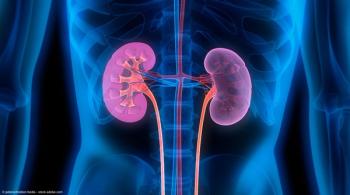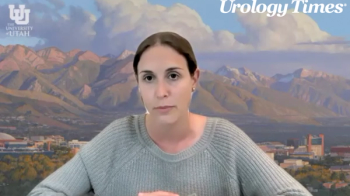
|Articles|July 24, 2018
Pediatric urology: Pictorial scale evaluates bladder perception in children
Research examining transcutaneous electrical nerve stimulation for nocturnal enuresis as well as pediatric sacral nerve stimulator explantation rate due to complications were among the noteworthy pediatric urology studies from AUA 2018.
Advertisement
Research examining transcutaneous electrical nerve stimulation for nocturnal enuresis as well as pediatric sacral nerve stimulator explantation rate due to complications were among the noteworthy pediatric urology studies from AUA 2018. The take-homes were presented by Emilie K. Johnson, MD, MPH.
- A pictorial urgency scale for evaluating bladder perception in children correlated with verbal descriptors and bladder volume on voiding cystourethrogram indicating the degree of urgency that the child felt. The scale has potential use for both clinical and research purposes.
- Plenary session highlights included a panel discussion on fertility preservation in the pediatric cancer patient, a state-of-the-art lecture on the role of antibiotics and imaging in prenatal urinary tract dilation, and the point-counterpoint debate, “Complex surgical cases should be centralized.”
- In one Societies for Pediatric Urology abstract, researchers administered an immunosuppressant called cytisine in an attempt to decrease testicular injury at the time of torsion. Testis weight in mice that received cytisine was significantly higher than those that had not, indicating that cytisine prevents testicular atrophy. Additionally, cytisine was shown to prevent testicular fibrosis in rats when administered around the time of a torsion event.
- In another SPU abstract, researchers presented a new, validated instrument for parental assessment of genital appearance in girls with congenital adrenal hyperplasia (CAH) called the Parental Assessment for Children’s External genitalia scale for Females (PACE-F). The study established the tool’s validity and demonstrated that PACE-F scores improved significantly after genital reconstruction in patients with CAH.
- Two studies looked at transcutaneous electrical nerve stimulation (TENS) for nocturnal enuresis, and found that while the number of wet nights may decrease somewhat, TENS monotherapy is not an effective treatment for nocturnal enuresis. Multimodal therapy is imperative.
- Several studies indicated that dysfunctional voiding appears to be due to a central defect. In one study, PET scans performed before and after nerve stimulation showed very substantial changes in brain activity that correlated with changes in patients’ symptoms. This hypothesis that dysfunctional voiding appears to be due to a central defect was also supported by a retrospective study that showed a correlation between non-neurogenic voiding dysfunction and neural psychiatric disorders in pediatric patients.
- Pediatric sacral nerve stimulator explantation rate due to complications is low, while there is a progressively increasing chance for explantation for cure beginning 2 years after implantation.
- A video abstract demonstrated some unique issues related to phalloplasty in exstrophy patients and also showed a technique for saphenous vein interposition grafts.
- Contemporary ureteral re-implant success rates may be lower than what has been published historically, at least in patients with high-grade vesicoureteral reflux (VUR). Separate studies examined high-grade (VUR) patients, and the success rates of both robotic re-implant and open re-implant were much lower than the very high success rates traditionally published for ureteral re-implantation surgery.
- In patients undergoing pyeloplasty and ureteral reimplant, routine preoperative screening urine cultures did not decrease the risk of postoperative urinary tract infections.
Newsletter
Stay current with the latest urology news and practice-changing insights — sign up now for the essential updates every urologist needs.
Advertisement
Latest CME
Advertisement
Advertisement
Trending on Urology Times
1
FDA approves sildenafil oral film for men with erectile dysfunction
2
The UroOnc Minute: Adjuvant Therapy in Renal Cell Carcinoma, with Brian Shuch, MD
3
Head-to-head analysis shows OS benefit with apalutamide vs darolutamide in mCSPC
4
URO-1 prostate biopsy devices adopted across Novant Health System as clinical study continues
5






